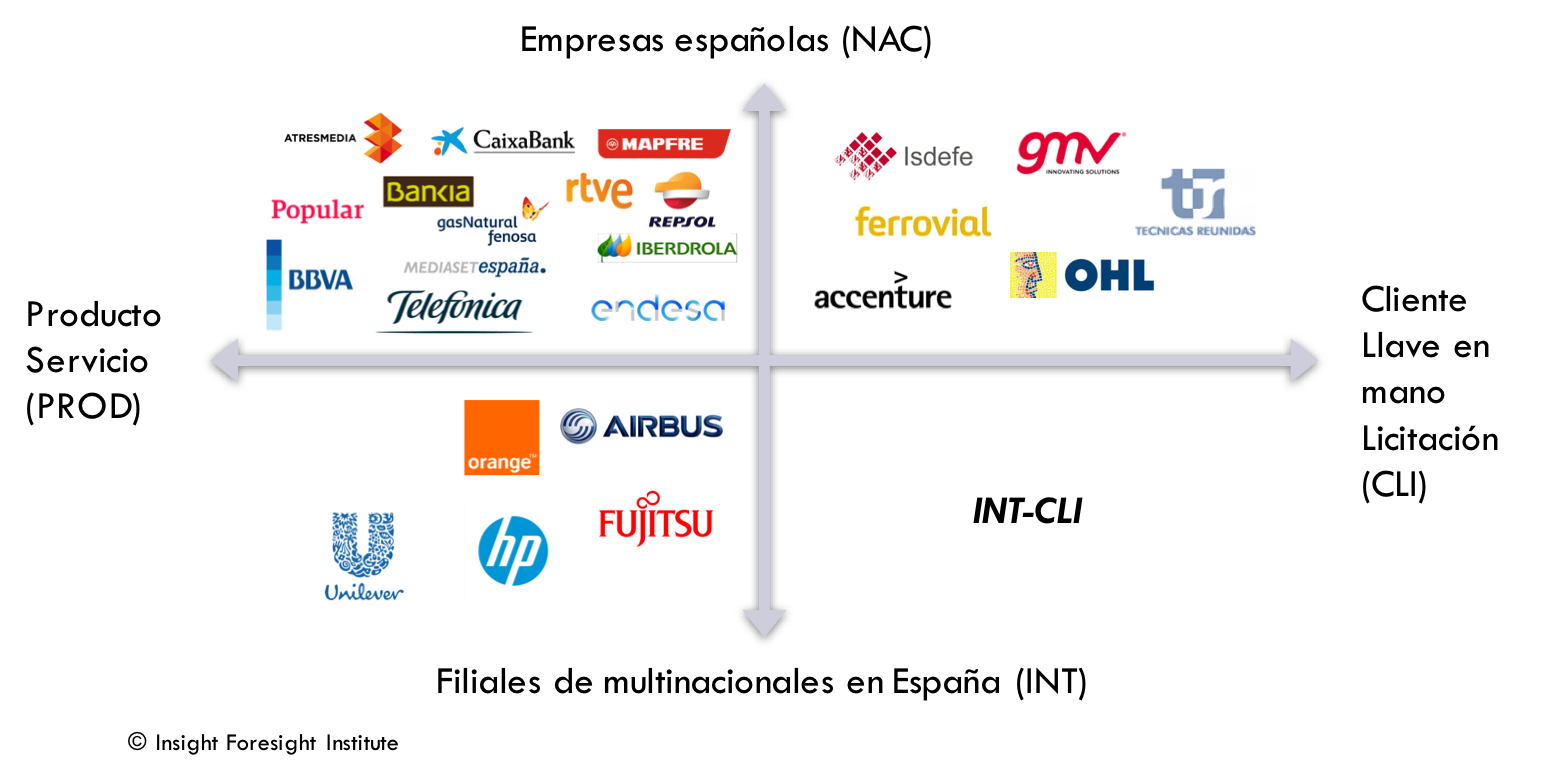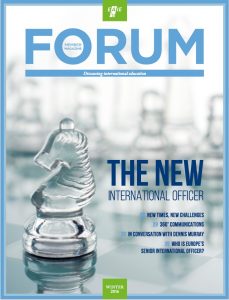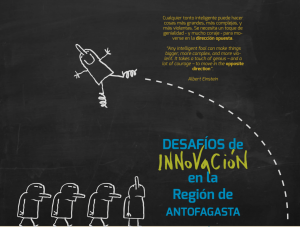Insight Foresight Institute has prepared a research on corporate innovation in Spain in connection with the E2I2 Forum (Education, Entrepreneurship, Innovation and Investment) coordinated by the Royal Academy of Engineering. The project consisted of: i) a study of the literature on intrapreneurship, innovation and corporate entrepreneurship, iii) verification of the data with public material, and iv) the final report.
There are several ways to approach entrepreneurship in corporations in Spain:
1. Do not carry out these activities: 9 companies of those consulted. Fundamentally in the Media sector and in the project oriented companies.
2. Intrapreneurship promotion: 17 companies consulted. Fundamentally based on employee ideas competitions.
3. Encourage external entrepreneurship: 16 companies consulted. Investment in new companies, customer cooperation, external ideas competitions, event sponsorship.
Based on the quantitative indicators consulted, it has been verified that some differences in the concrete dimensions that have been interesting to highlight (Image 1):
• Companies focused on the development and sale of products / services in front of companies focused on client projects (turnkey, tenders, etc …).
• Companies with corporate headquarters in Spain against subsidiaries of foreign companies.

Figure 1. Distribution of companies interviewed according to type of sales and location of corporate headquarters.
The behavior regarding entrepreneurship, ideas management and innovation offers some nuances according to the quadrant that is observed (Image 2).

Figure 2. Positioning of the interviewed companies regarding their activities of ideas management, innovation and entrepreneurship.
Barriers perceived in companies to innovate can be grouped into external barriers, such as: (i) low entrepreneurial culture at country level; (ii) deficiencies in the education system and knowledge generation; (iii) poor public support and regulatory constraints; and (iv) difficulties in the financing of these activities, and internal barriers such as (i) Enterprise culture and vertical structures. Excessive internal bureaucracy; (ii) Financial bias in decision-making. Lack of innovation indicators and iii) Operational problems: Selection of non-entrepreneurial personnel and unchanging processes.
It can be concluded that there is great predisposition to entrepreneurship and innovation but little radical and disruptive innovation. Companies have specific units of high level corporate innovation, but also innovation in vertical units. The importance of ecosystem management is recognized. Intrapreneurship activities are carried out without specific remuneration in most cases. If it occurs, in kind and promotion. There is a broad interest in indicators: i) Process: efficiency and effectiveness of projects, ii) Strategic: most used, iii) Financial: main interest. Limitations by traceability.
To know the concrete results of the study, send us an email: info@if-institute.org
 Luis Delgado and Totti Könnölä (CEO of IFI) write in the EAIE Magazine on the role of international officers in Spanish universities. The analysis of job offers for international officers in higher education in Spain leads to the conclusion that their main goal is to support the recruitment of international students. They often work within recruitment teams, managing sales channels for specific regions to fulfil the university´s recruitment objectives. Nowadays, however, the concept of internationalisation of higher education should go far beyond student recruitment, the mere mobility of student, or the signing of international agreements. There is much more to a career in international higher education!
Luis Delgado and Totti Könnölä (CEO of IFI) write in the EAIE Magazine on the role of international officers in Spanish universities. The analysis of job offers for international officers in higher education in Spain leads to the conclusion that their main goal is to support the recruitment of international students. They often work within recruitment teams, managing sales channels for specific regions to fulfil the university´s recruitment objectives. Nowadays, however, the concept of internationalisation of higher education should go far beyond student recruitment, the mere mobility of student, or the signing of international agreements. There is much more to a career in international higher education! The co-founder of IFI, Totti Könnölä co-authored the European Foresight Platform brief on the foresight programme, of which overall objective was to enhance innovation-driven sustainable economic development of the Antofagasta region in Chile. The main purposes of the foresight
The co-founder of IFI, Totti Könnölä co-authored the European Foresight Platform brief on the foresight programme, of which overall objective was to enhance innovation-driven sustainable economic development of the Antofagasta region in Chile. The main purposes of the foresight